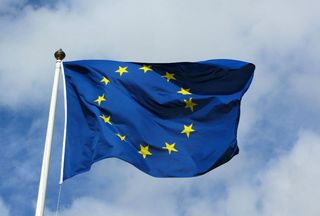Link Tax, 'Censorship Machines' Pass EU Committee Vote

The highly criticized European Union copyright reform proposal has passed the JURI Committee on Legal Affairs vote. That means means the bill will now advance through the EU Council (made up of heads of national governments) and European Parliament (EP), which will negotiate the law further.
Article 11, 13 Remain In The EU Copyright Reform
By far the most criticized articles by activists and other EU politicians have been Article 11 and Article 13. Article 11 refers to the so-called “link-tax,” which will require sites that link to news stories to pay the original authors.
Although this may sound like a good idea in theory, chances are high that the result will be what happened in Spain and Germany, where similar copyright law changes passed: sites simply stopped referring traffic to the publishers that wanted to be paid for the links or excerpts from their stores.
Article 13 is about the so-called “censorship machines,” officially called “upload filters.” The EU politicians who drafted this proposal would like all online platforms to have filters that can block and remove copyrighted content as soon as it’s posed by anyone on their site. Failing to do that would make them liable to copyright violations.
As we’ve seen recently, even YouTube, which has one of the most advanced upload filters there is, often mistakes legitimate content for copyright violations. Furthermore, we typically learn only about high-profile cases, not about the day-to-day censorship of less popular YouTube channels.
What’s Next?
On July 2, the EP will vote on whether or not the negotiations with the EU Council will begin. That means it would also be the perfect time for activists to stop the new copyright proposal dead in its tracks.
Otherwise, the EP will start negotiations with the EU Council later this fall, and then the final draft bill will be up for a vote in the EP around the end of this year or start of 2019. Previously, anti-copyright activists were able to stop the ACTA copyright treaty with the U.S. by convincing enough Members of the European Parliament (MEPs) to vote against it in the final vote.
Stay on the Cutting Edge
Join the experts who read Tom's Hardware for the inside track on enthusiast PC tech news — and have for over 25 years. We'll send breaking news and in-depth reviews of CPUs, GPUs, AI, maker hardware and more straight to your inbox.
It remains to be seen whether or not Article 11 and Article 13 of the new copyright law will see a similar fate. If you want to make your voice heard to your MEP, you can call and email them.
-
Mark Honzawa So let me get this straight, in order to "protect" copywrites they want to prevent other sites from driving traffic to their news sites by forcing fees to create those links. How did someone think this a good idea other than to attack news aggregators like Drudge?Reply -
Martell1977 Reply21073248 said:So let me get this straight, in order to "protect" copywrites they want to prevent other sites from driving traffic to their news sites by forcing fees to create those links. How did someone think this a good idea other than to attack news aggregators like Drudge?
It's a tax, so of course politicians of a certain ideology love the idea. It's no different than "gun control", it's more about control than guns. This is more about taxes than copyright protection.
Reality is, when a story is linked, if the reader is interested, then they follow that link and the original website hosting the story gets the revenue from the traffic. Unless it is a full copy of the article with a link at the end to the original story, then there is no loss there.
It's what you get when political hacks try to regulate things they have no knowledge of. -
jimmysmitty Reply21073401 said:21073248 said:So let me get this straight, in order to "protect" copywrites they want to prevent other sites from driving traffic to their news sites by forcing fees to create those links. How did someone think this a good idea other than to attack news aggregators like Drudge?
It's a tax, so of course politicians of a certain ideology love the idea. It's no different than "gun control", it's more about control than guns. This is more about taxes than copyright protection.
Reality is, when a story is linked, if the reader is interested, then they follow that link and the original website hosting the story gets the revenue from the traffic. Unless it is a full copy of the article with a link at the end to the original story, then there is no loss there.
It's what you get when political hacks try to regulate things they have no knowledge of.
Which is the majority of the politicians. They have no real idea how anything works. I watched a video of EU members lambasting a Youtube rep for suggesting a Tommy Robinson video on the main page. Whatever a persons opinion of him his video falls into political in origin and if someone watches a lot of political videos they will likely get recommended videos that might not always be just a big echo chamber and rather challenge their ideals.
But of course it is obviously Youtube being racists or sexist or something... I don't know.
If we had actual technology driven people building laws around technology it would be one thing. Problem is the corruption in politics is too great and it is mostly boring compared to working with the tech. I mean at least these politicians could consult with people in the industry first.
Most Popular




